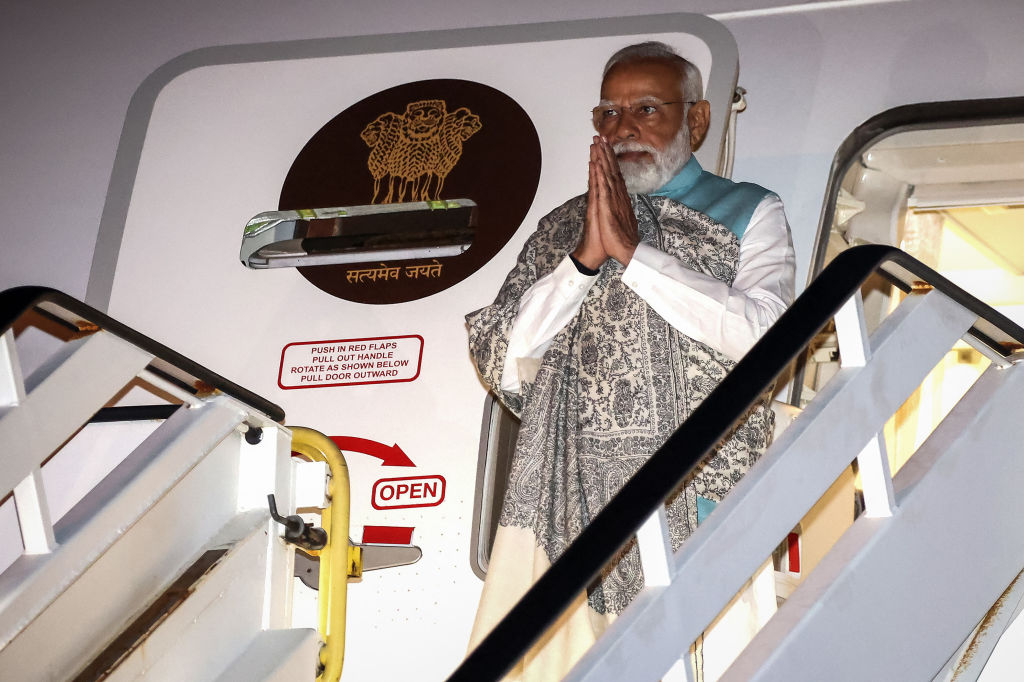- Tuesday, June 17, 2025
Under Modi, India’s foreign policy has maintained a delicate balance between countries despite several challenges and the prime minster’s able team has helped New Delhi in its mission.

By: Shubham Ghosh
Narendra Modi will complete nine years as the prime minister of India on Friday (26) (officially on May 30 as Modi took oath as the PM for the second time on that date in 2019) and as in many other fields, India has emerged a key player in global affairs and international relations in this period, feel political leaders and experts.
According to them, Modi has confidently faced the world and asserted that he is a strong leader who represents the country with the biggest population and a fast growing economy and a nation which is preferred by the West, particularly when it comes to tackling expansionist China.
Amitabh Kant, sherpa of the G20 grouping of which India currently holds the presidency, told NDTV that India has made it to the centre stage because of its ability and particularly the ability of Modi to work together with different countries and their leaders.
Modi had started his journey with a master stroke in foreign affairs. When he took oath as the prime minister for the first time on May 26, 2014, he had invited leaders from all of India’s neighbours and near neighbours. Even Pakistan was not excluded. He also made a sudden visit to Lahore in late 2015 to meet former Pakistani prime minister Nawaz Sharif at his home. Though India-Pakistan relations currently have touched the nadir due to various factors such as cross-border terror, it will not be wrong to say that Modi had not tried to mend things when he first took charge.
India’s external affairs minister Subrahmanyam Jaishankar feels Modi has played an instrumental role in driving New Delhi’s foreign policy agenda.
“…It’s the relationship with the US which has seen the biggest transformation. After decades of eyeing each other with concern, India and America are now the closest strategic partners, having closed out key foundational agreements that took years for both sides to agree on,” he was quoted as saying by NDTV.
Modi has visited the US as many as seven times and the eighth is coming up next month, which will also be his first state visit. He has worked with three American presidents so far — Barack Obama and Joe Biden from the Democratic Party and Donald Trump from the Republican Party and it shows that there has not been much difference in the two democracies’ relations irrespective of the party in power in Washington. While economy, business and strategic interests remain major factors that bring the two countries together, Modi’s personal appeal to the American leadership is no less significant.
“America no longer sees India through the prism of New Delhi’s historic closeness with Moscow and India no longer sees the US through the prism of their relationship with Islamabad… With the US having decisively shifted its gaze to the Pacific, India is a natural partner, the world’s largest democracy and the world’s oldest democracy in a partnership. Narendra Modi has driven this alliance,” the Indian foreign minister said.
Modi has also succeeded in personalising relations with world leaders. His rapport with late Japanese prime minister Shinzo Abe was well known and when Abe was assassinated last year in his home country, Modi was deeply saddened and he even went there to attend his friend’s funeral. But the absence of Abe did not affect India’s relations with Japan either and Modi has been as close to his successors, including current Japanese prime minister Fumio Kishida.
While India has strengthened its ties with the US under Modi, it has also ensured that its historic ties with all-weather friend Russia are not affected. It has been seen also in the context of the ongoing war in Ukraine. India has maintained its ties with Ukraine and Modi, at the same time, has also told Russian president Vladimir Putin that this is not the time for year. In the middle of these geopolitical plays, India has continued with its import of Russian oil despite criticism from the West.
It is interesting to note that India has remained a party to major international summits, irrespective of its relations with countries. While it is a member of Shanghai Cooperation Organisation (SCO) and BRICS — groups that include countries such as China, Russia and Pakistan (in SCO), it also takes part in G7 summits that include the advanced economies from Europe, Americas and Asia.
Under Modi, India has also not overlooked tiny nations such as those in the Pacific islands or those in the neighbourhood such as Nepal and Bhutan for New Delhi knows their significance in the geostrategic power game with China. Even in Africa, either Modi or representatives of his foreign affairs team have made India’s presence felt.
Connecting to the Indian diaspora is another area where the Modi government has excelled and it has played a key role in facilitating its overall foreign affairs.
Border clashes with China and cross-border terror from Pakistan remain two of the major challenges for the Modi government’s foreign policy and it will be interesting to see how the prime minister tackles them in the days to come.